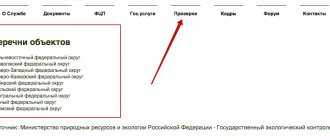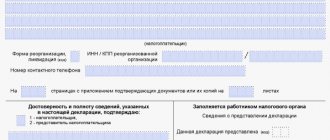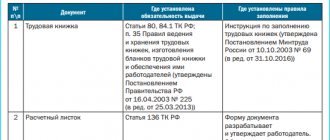Taxation VAT
organizations (including non-profits)
Conventionally, all VAT taxpayers can be divided into two groups:
- taxpayers of “domestic” VAT
i.e. VAT paid on the sale of goods (work, services) on the territory of the Russian Federation - taxpayers of “import” VAT
i.e. VAT paid when importing goods into the territory of the Russian Federation
Organizations and entrepreneurs whose total revenue from the sale of goods (works, services) over the previous 3 consecutive calendar months did not exceed 2 million rubles in total can submit a notification and receive an exemption from the duties of a VAT payer for a year (
Art. 145 Tax Code of the Russian Federation
).
- applying the taxation system for agricultural producers (UST);
- applying the simplified taxation system (STS);
- applying the patent taxation system;
- applying the taxation system in the form of a single tax on imputed income for certain types of activities (UTII) - for those types of activities for which UTII is paid;
- exempted from fulfilling the duties of a VAT payer in accordance with Art. 145 Tax Code of the Russian Federation;
- participants of the Skolkovo project (Article 145.1 of the Tax Code of the Russian Federation).
Exception! The listed persons are required to pay VAT if they issue an invoice to the buyer with the allocated VAT amount.
- operations for the sale of goods (works, services), property rights on the territory of the Russian Federation, including their
- gratuitous transfer;
- import of goods into the territory of the Russian Federation (import);
- carrying out construction and installation work for own consumption;
- transfer of goods (work, services) for one’s own needs, the costs of which are not deductible when calculating corporate income tax.
In general, the tax is calculated based on the cost of goods (work, services) sold and property rights.
When should an individual entrepreneur generate a VAT return?
The VAT return in 2020 must be prepared by organizations and individual entrepreneurs, including intermediaries, which (clause 5 of Article 174 and subclause 1 of clause 5 of Article 173 of the Tax Code of the Russian Federation):
- are recognized as VAT payers;
- are tax agents for VAT.
At the same time, the following may not submit a VAT return in 2020:
- organizations and individual entrepreneurs using the simplified tax system, unified agricultural tax, UTII or patent taxation system;
- organizations exempt from VAT (whose revenue excluding VAT over the last 3 months did not exceed 2 million rubles);
- taxpayers submitting a simplified tax return (who have no VAT transactions or no movements in current accounts).
Organizations and individual entrepreneurs importing goods from EAEU countries must report to the Federal Tax Service by submitting a VAT declaration on imports no later than the 20th day of the month following the month of registration of imported goods/payment deadline under the contract (clause 20 of Appendix No. 18 to the Agreement on Eurasian Economic Union).
| The period for which the VAT return for import is submitted | Due in 2020 |
| for December 2020 | 22.01.2018 |
| for January 2020 | 20.02.2018 |
| for February 2020 | 20.03.2018 |
| for March 2020 | 20.04.2018 |
| for April 2020 | 21.05.2018 |
| for May 2020 | 20.06.2018 |
| for June 2020 | 20.07.2018 |
| for July 2020 | 20.08.2018 |
| for August 2020 | 20.09.2018 |
| for September 2020 | 22.10.2018 |
| for October 2020 | 20.11.2018 |
| for November 2020 | 20.12.2018 |
The VAT declaration for imports for December 2020 must be submitted already in 2020 - no later than 01/21/2019.
If you find an error, please highlight a piece of text and press Ctrl Enter.
All regimes, except OSNO and Unified Agricultural Tax (from 2020), exempt him from the status of a VAT payer and, accordingly, from the need to submit regular reports on this tax.
In addition, an individual entrepreneur on OSNO may be recognized as a VAT defaulter due to his declared right to exemption under Art. 145 of the Tax Code of the Russian Federation (when its revenue without VAT for 3 months in a row turned out to be no more than 2 million rubles, provided that it was not related to the sale of excisable goods). Since 2020, VAT exemption is also available under the Unified Agricultural Tax.
That is, individual entrepreneurs who have a small-scale business and have declared the use of this special tax regime or exemption from value added tax should not report VAT. Although it is not excluded for them the periodic occurrence of situations requiring the filing of a declaration for this tax (obligation of a tax agent, payment of import tax, issuance of an invoice with tax by the defaulter).
However, if such statements are not made or the individual entrepreneur, due to the volume of income, does not have the right to claim preferential tax conditions, then he must systematically report on value added tax on a general basis. This obligation is not removed even in the situation of combining OSNO with regimes that exempt from VAT.
When to submit a report on indirect taxes
When importing products from countries that are members of the EAEU, organizations and entrepreneurs are required to declare VAT payable upon import. The system of taxation of importers does not matter - everyone must report.
Importers submit a declaration on indirect taxes to the tax authorities on a monthly basis. To prepare the report, 20 calendar days are given after the end of the month in which the imported goods were accepted on the balance sheet, or the month in which the payment deadline falls if leased property was imported (clause 20 of Appendix 18 to the Treaty on the EAEU). Along with the report, it is necessary to fill out and submit to the controllers an application for the import of goods and payment of indirect taxes and documents confirming the import.
Subscribe to our newsletter
Read us on Yandex.Zen Read us on Telegram
In 2020, the deadlines for submitting VAT reports on imports fall on the following dates:
The general rules for the presentation of tax reporting apply to the declaration of indirect taxes. If the number of employees is within 100 people, indirect taxes can be declared on paper.
Deductions
VAT amounts that are subject to deductions are:
- presented by suppliers (contractors, performers) when purchasing goods (works, services);
- paid when importing goods into the territory of the Russian Federation in the customs procedures of release for domestic consumption, temporary import and processing outside the customs territory;
- paid when importing goods into the territory of the Russian Federation from the territory of member states of the Customs Union (Clause 2 of Article 171 of the Tax Code of the Russian Federation).
“Input” VAT can be deducted only after goods (work, services) have been accepted for accounting and there are corresponding primary documents and an invoice.
To apply deductions you must have:
- invoices;
- primary documents confirming the acceptance of goods (works and services) for accounting.
In some cases, instead of invoices, other documents confirming tax payment are used.
When purchasing building materials in the amount of 120 rubles (including VAT 20 rubles), transportation services in the amount of 59 rubles (including VAT 9 rubles), medical services (preferential operation) for 30 rubles excluding VAT, the amount VAT deductible will be: 20 rubles 9 rubles = 29 rubles.
How VAT evaders report: deadlines and form
In 2020, prepare a declaration in the form approved by order of the Federal Tax Service of Russia dated October 29, 2014 No. ММВ-7-3/558.
As part of the declaration, each organization that pays VAT must submit to the tax office:
- title page;
- Section 1 “The amount of tax subject to payment to the budget (reimbursement from the budget), according to the taxpayer.”
Include the remaining sections in the declaration only if the organization performed transactions that should be reflected in these sections. For example, sections 4–6 must be completed and submitted if during the tax period the organization carried out transactions subject to VAT at a rate of 0 percent. And section 7 - if there were transactions that were exempt from VAT.
The declaration to be submitted for VAT for the 3rd quarter of 2020 should be drawn up in the form approved by Order of the Federal Tax Service of Russia dated October 29, 2014 No. ММВ-7-3 / [email protected] as amended on December 28, 2018, using those sections in it , for which the taxpayer has data to fill out.
The deadline for submitting the VAT report for the 3rd quarter of 2020 is subject to a single requirement established in relation to it in paragraph 5 of Art. 174 of the Tax Code of the Russian Federation and prescribing to submit a declaration to the Federal Tax Service before the end of the 25th day of the month following the expired tax period. A specific date in reality may be shifted to a later day due to coincidence with a general day off (Clause 7, Article 6.1 of the Tax Code of the Russian Federation), but October 25, 2019 is a weekday, and therefore it will be the deadline for filing a declaration.
Read about the consequences of late submission of a return in the article “What is the amount of the fine for failure to submit a VAT return in 2019?”
The only method available to taxpayers and tax agents for submitting VAT reports is indicated by the Tax Code of the Russian Federation (Clause 5, Article 174) electronically, with the caveat that using another method it will not be considered submitted.
We invite you to familiarize yourself with the Extract of the deceased from the house register, the procedure for extracting from the apartment, what documents are needed, an application
NOTE! For tax agents who are not VAT taxpayers or are VAT exempt taxpayers, an exception to this rule is made. They can submit a return on paper.
Is it necessary to submit a declaration if you just registered in the 3rd quarter of 2020? We discuss here
When issuing an invoice with an allocated tax amount, VAT defaulters are required to transfer VAT to the budget and submit VAT reports. It is necessary to take into account that VAT evaders:
- use the same declaration form as the payers of this tax (KND form 1151001);
- are required to submit a declaration at the end of the quarter in which the VAT invoice was issued - based on the results of the 2nd quarter, the deadline for reporting falls on 07/25/2019;
- the declaration includes (in addition to the mandatory title page) an abbreviated set of sections (1 and 12).
The legal requirements for the timing and execution of VAT reporting for such situations are determined:
- clause 5 art. 174 Tax Code of the Russian Federation.
- para. 7 clause 3 of section I of Appendix No. 1 to the Procedure for filling out the VAT return, approved by Order of the Federal Tax Service dated October 29, 2014 No. ММВ-7-3/558.
Example 1
In May 2020, simplified Tourist-Inter LLC issued an invoice to the counterparty with the allocated amount of VAT = 334,667 rubles. This was done in order to maintain important partnerships. The chief accountant of Tourist-Inter LLC is familiar with the responsibilities established in clause 5 of Art. 174 of the Tax Code of the Russian Federation - at the end of the 2nd quarter (no later than July 25, 2019), he will issue a payment order for the transfer of VAT in the amount of 334,667 rubles. to the budget.
Despite the fact that the declaration form in such situations is the same as for VAT payers, splitting the payment into 3 payment terms is not allowed. The entire amount allocated in the invoice of the VAT defaulter must fall into the budget for one payment period.
Split the payment - you will pay penalties
Splitting the VAT into 3 parts for subsequent monthly transfer to the budget is the norm provided for in paragraph 1 of Art. 174 Tax Code of the Russian Federation. This is what guided the company in our example.
Example
Vyatskie Products LLC applies UTII and does not work with VAT. In December 2020, the company, due to certain circumstances, was forced to issue an invoice in the amount of RUB 377,600. (including VAT = RUB 57,600).
At the end of the 4th quarter of 2020, specialists of Vyatskie Products LLC prepared a VAT return with the amount of VAT payable - 57,600 rubles.
Knowing the norm of paragraph 1 of Art. 174 of the Tax Code of the Russian Federation on the possibility of paying VAT to the budget in installments, the accountant of Vyatskie Products LLC calculated the amount of the first VAT payment:
VAT1 = 57,600 rub. / 3 = 19,200 rub. - he indicated this amount in the payments dated 01/27/2020, 02/25/2020 and 03/25/2020.
At this point, Vyatskie Products LLC considered its obligations for payment and VAT reporting to be fulfilled in full.
In April 2020, after completing a desk tax audit of the VAT return received by controllers from Vyatskie Products LLC, the company received a request to pay penalties. But why?
The mistake of the accountant of Vyatskie Products LLC was that, when dividing the VAT into parts, he did not take into account the requirements of clause 4 of Art. 174 Tax Code of the Russian Federation. It says that the persons specified in paragraph 5 of Art. 173 of the Tax Code of the Russian Federation (which includes special regime officers who issued invoices) are required to pay VAT no later than the 25th day of the month following the reporting quarter. There is no possibility for them to pay the tax in installments.
For those who are not yet allowed to split VAT, find out from the material.
Visual diagrams and tables: legitimate cases of late reporting
In 2020, the VAT return must be submitted no later than the 25th day of the month following the expired quarter (Articles 163, 174 of the Tax Code of the Russian Federation). The deadline is the same for submitting a declaration on paper and in electronic form. The reporting months in 2020 are January, April, July, October.
In 2020, VAT payers can submit a VAT report via the Internet. And only tax agents can submit a declaration “on paper”. The exception is an agent who does not pay VAT. That is, a person applies a special regime or is exempt from paying tax under Article 145 of the Tax Code of the Russian Federation. Then it is allowed to submit the declaration “on paper” or electronically.
If the deadline for submitting the declaration falls on a weekend or holiday, as a general rule, you can report on the next working day (Clause 7, Article 6.1 of the Tax Code of the Russian Federation). Below we provide a table with the deadlines for submitting the VAT declaration in 2020.
| Reporting period | Deadline for submitting the VAT return |
| 4 sq. 2020 | January 27, 2020 |
| 1 sq. 2020 | April 27, 2020 |
| 2 sq. 2020 | July 27, 2020 |
| 3 sq. 2020 | October 26, 2020 |
| 4 sq. 2020 | January 25, 2021 |
Late reporting is usually fraught with punishment (we will talk about it in the last section of our article). But there is also a legal way to delay submitting a report. It is provided to us by Art. 6.1 of the Tax Code of the Russian Federation, which provides for the possibility of rescheduling dates if they coincide with a weekend or holiday.
We have prepared detailed tables for you, with which you can easily determine the reporting dates (including reporting dates for VAT for the 1st quarter of 2020).
All quarterly reporting dates for VAT in 2020 fell on non-working days, so when submitting returns to the tax authorities, use these dates as final dates. But the deadline for the report for the 4th quarter in 2021 falls on a working day.
For importers (when importing goods from the EAEU), reporting dates for VAT in 2020 fall on weekends three times (in June, September and December 2020), so the final reporting dates in these months occur 1-2 days later than those established by law.
The deadlines for submitting the invoice journal (hereinafter referred to as the journal) are not postponed in 2020.
As can be seen from the table diagrams, for VAT reporting for the 1st quarter of 2020, the deadline is not postponed only for the invoice journal, since the deadline for reporting coincides with a working day. The indirect return and the VAT return can be submitted later.
In 2020, the VAT return must be submitted no later than the 25th day of the month following the expired quarter (Articles 163, 174 of the Tax Code of the Russian Federation). The deadline is the same for submitting a declaration on paper and in electronic form. The reporting months in 2020 are January, April, July, October.
If the deadline for submitting the declaration falls on a weekend or holiday, you can, as a general rule, report on the next working day (Clause 7, Article 6.1 of the Tax Code of the Russian Federation). However, in 2020, none of the deadlines for submitting the declaration coincide with a weekend or holiday. Below is a table with the deadlines for submitting the VAT declaration in 2018.
| Reporting period | Deadline for submitting the VAT return |
| 4 sq. 2020 | January 25, 2020 |
| 1 sq. 2020 | April 25, 2020 |
| 2 sq. 2020 | July 25, 2020 |
| 3 sq. 2020 | October 25, 2020 |
| 4 sq. 2020 | January 25, 2020 |
VAT reporting deadlines for 2020
The VAT return for the year is submitted four times, since the tax period for the tax is quarterly. At the same time, for most taxpayers, a unified approach to determining the deadlines for submitting VAT reporting is used - the VAT return must be prepared and submitted to the tax authorities within 25 days from the end of the quarter. If the 25th is a holiday, the reporting period is shifted to the next working day.
For example, for the VAT return for the 4th quarter of 2020, the due date is no later than 01/27/2020.
Find out about the nuances of filling out a VAT return for the year from the materials in our section.
In addition to the 25th, in January 2020 there is another benchmark for VAT reporting. For those who care not to forget about this reporting date, we will tell you in the next section.
Deadlines for transferring the invoice journal to the Federal Tax Service in 2020
In 2020, intermediaries acting in the interests of third parties on their own behalf are required to submit logs of invoices received and issued. They are:
- commission agents;
- agents;
- forwarders (involving third parties without their own participation);
- developers (involving third parties without their own participation).
The deadline for submitting the log of received and issued invoices is no later than the 20th day of the month following the expired quarter. Below in the table we show the deadlines for submitting the journal of received and issued invoices in 2020.
| Reporting period | Deadline |
| 4 sq. 2020 | January 20, 2020 |
| 1 sq. 2020 | April 20, 2020 |
| 2 sq. 2020 | July 20, 2020 |
| 3 sq. 2020 | October 20, 2020 |
| 4 sq. 2020 | January 20, 2021 |
We invite you to familiarize yourself with the Features of registration of sick leave for in vitro fertilization
The deadline for submitting the log of received and issued invoices is no later than the 20th day of the month following the expired quarter. Below in the table we show the deadlines for submitting the journal of received and issued invoices in 2020.
| Reporting period | Deadline |
| 4 sq. 2020 | January 22, 2020 (postponed from January 20) |
| 1 sq. 2020 | April 20, 2020 |
| 2 sq. 2020 | July 20, 2020 |
| 3 sq. 2020 | October 22, 2020 (postponed from October 20) |
| 4 sq. 2020 | January 21, 2020 |
Filing reports and paying VAT
Persons who are tax payers must periodically submit reports at the end of the period. The laws provide for deadlines for submitting declarations, as well as the time for their consideration by fiscal authorities.
Deadlines before the 25th day of the month following the reporting period must be observed. The smallest amount of sanctions for non-compliance with this procedure is 1000 rubles.
There is a certain procedure and rules for making tax payments. Moreover, each company with any OPF must submit a report. Documentation is submitted electronically - the advantages of this method of submission are that unauthorized persons cannot make changes to the document, the sender receives information that the document has been delivered.
Declaration
The VAT return is submitted by the taxpayer (tax agent) to the tax authorities at the place of registration as a VAT payer no later than the 25th day of the month following the expired tax period. There is no need to draw up and submit declarations for the location of separate units. The entire tax amount goes to the federal budget.
For example, for the first quarter of 2020, the VAT return must be submitted by April 25, 2020.
A fine is provided for failure to submit a declaration (Article 119 of the Tax Code of the Russian Federation).
Starting from the tax period of the 1st quarter of 2014, the VAT tax return is submitted electronically.
From January 1, 2020, the VAT return, which must be submitted in electronic form, but submitted on paper, is not considered submitted (clause 5 of Article 174 of the Tax Code of the Russian Federation).
Attention! If the taxpayer fails to submit a tax return to the tax authority within 10 days after the expiration of the established period, transactions on the accounts may be suspended (clause 3
Art. 76 Tax Code of the Russian Federation
).
The form of the VAT tax return and the procedure for filling it out were approved by order of the Federal Tax Service of Russia dated October 29, 2014 No. ММВ-7-3/ [email protected] taking into account the changes made by order of the Federal Tax Service of Russia dated December 28, 2018 N SA-7-3/ [email protected]
The declaration is filled out in rubles without kopecks. Indicators in kopecks are either rounded to the nearest ruble (if more than 50 kopecks) or discarded (if less than 50 kopecks).
The title page and section 1 of the declaration are submitted by all taxpayers. These requirements also apply to those taxpayers whose tax base is zero at the end of the quarter.
Sections 2 - 12, as well as appendices to the declaration, are included in the declaration only when taxpayers carry out relevant operations.
Sections 4-6 are completed in case of carrying out activities taxable at a VAT rate of 0 percent.
Sections 10-11 are completed in the case of issuing and (or) receiving invoices when carrying out business activities in the interests of another person on the basis of commission agreements, agency agreements or on the basis of transport expedition agreements, as well as when performing the functions of a developer.
Chapter
12
The declaration is completed only if the buyer is issued an invoice with the allocation of the tax amount by the following persons:
- taxpayers exempt from fulfilling taxpayer obligations related to the calculation and payment of value added tax;
- taxpayers upon shipment of goods (work, services), sales operations of which are not subject to value added tax;
- persons who are not taxpayers of value added tax.
Filing a VAT return electronically: deadlines, main advantages
- There is no need to go to the tax office or stand in line, because you can report at any time from the taxpayer’s office;
- If you submit documents in electronic format, you do not need to print them on paper;
- The possibility of technical errors is reduced;
- Quick update of various reporting formats;
- Receive notifications about confirmation of delivery of the declaration;
- Security of declarations from viewing and modification by others;
- Possibility of sending an information request to the tax authorities.
It is now possible to submit reports using the website of the Federal Tax Service of the Russian Federation.
As for tax agents, they will not be able to use the electronic filing method; they will have to “physically” submit a paper return to the tax office.
Visual diagrams and tables: legitimate cases of late reporting
When using OSNO, a VAT declaration is generated and submitted quarterly for a period equal to the past 3 months (i.e. the next reporting quarter), even if there is no data to fill out its main sections.
In the latter case, if for some reason there has been no activity since the beginning of the year (there are no sales or cash flows), it is possible to generate VAT reporting in the form of a zero return or as part of a single simplified tax return.
The declaration must be submitted electronically. Other options for submitting it are unacceptable for tax payers and result in non-acceptance of the submitted reports and a fine for failure to submit them (clause 5 of Article 174, clause 1 of Article 119 of the Tax Code of the Russian Federation).
VAT is one of the few taxes, the calculation of which may result in an amount due for reimbursement from the budget. This happens often for exporters, but it is not uncommon for those working only in the Russian Federation.
Showing the amount to be reimbursed in the reporting traditionally leads to an immediate request from the Federal Tax Service for clarification (they also require an electronic filing format) and documents confirming the legality of reflecting the data included in the declaration. Those non-exporters who do not wish to face this situation should consider using legal means to regulate the amount of the applicable deduction.
If you submitted your return late or did not report VAT at all (if there is such an obligation), expect:
- fine (paragraph 2, clause 1, article 119 of the Tax Code of the Russian Federation) for each month of delay in reporting (5% of the amount indicated in the declaration for each month of delay, but not less than 1000 rubles and not more than 30%);
- suspension by tax authorities of transactions on the accounts of a company or individual entrepreneur (subclause 1, clause 3, article 76 of the Tax Code of the Russian Federation).
Find out how to avoid penalties for being late with your VAT return in this publication.
For failure to submit a journal, punishment under Art. 119 of the Tax Code of the Russian Federation does not threaten you, because the provisions of this article provide for a fine for being late with the declaration.
However, tax officials can punish for failure to submit a journal under other articles of the Tax Code of the Russian Federation.
Find out what these articles are and how to challenge the penalty for failure to submit an invoice log by following the link.
The Federal Tax Service will be happy if in 2020 you submit your VAT return 5-10 days before the end of the deadline. However, if you submit your VAT return electronically, then there is nothing to fear. After all, the date for sending the declaration is fixed, and you will also have a corresponding protocol. If in 2020 you violate the deadlines for submitting a VAT return, then the liability in the form of a fine will be 5% of the unpaid amount of VAT payable on a late return for each full or partial month that has passed from the day set for submitting the return to day of delivery. However, the fine cannot be more than 30% of the amount of tax due and not paid on time and not less than 1000 rubles (clause 1 of Article 119 of the Tax Code of the Russian Federation).












